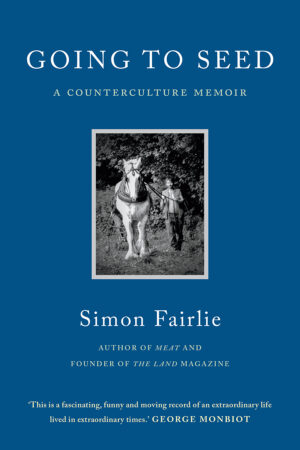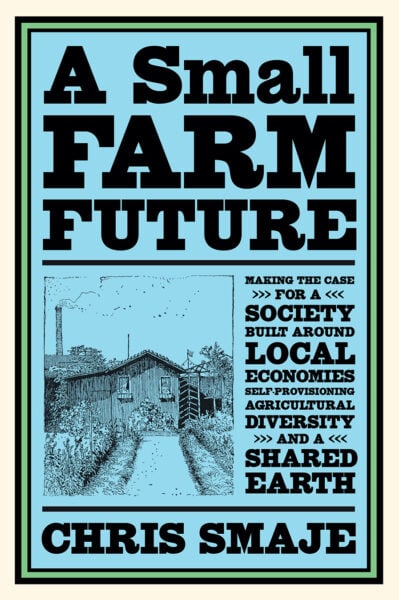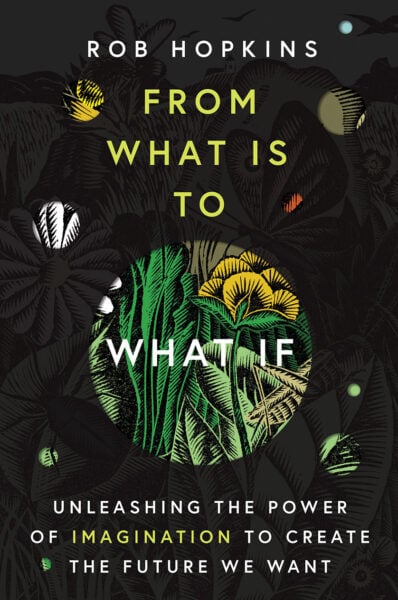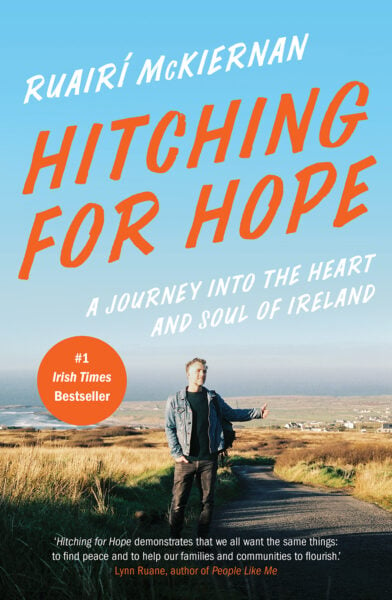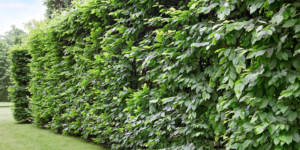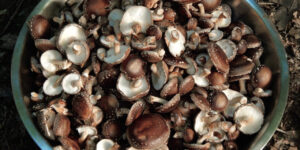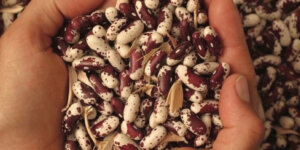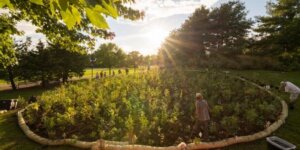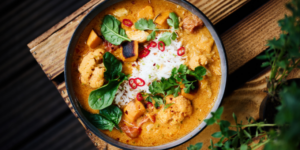On the Hippie Trail
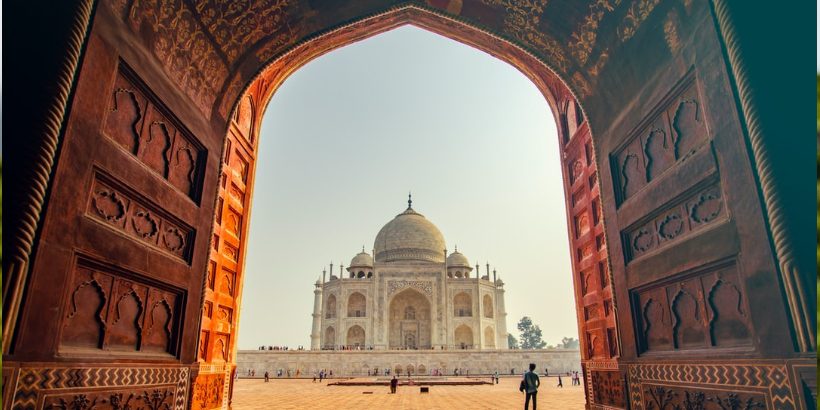
From a young age, Simon Fairlie decided to go off the beaten path, also known as “the hippie trail.” After attending an all-boys boarding school, Fairlie decides to skip attending Cambridge and explore the world.
The following is an excerpt from Going to Seed by Simon Fairlie. It has been adapted for the web.
‘If you don’t want to go to Cambridge don’t go,’ my father had written. ‘I mean that. Go and drift wherever you please. Go and sit on a beach and become a Beachcomber, not just for a holiday, which is delightful, but for the rest of your youth.’
We did go where we pleased, to India. Perhaps I was just pursuing a fashionable trend, but for Carol, who was born in India and left when she was thirteen, this was about retracing her roots. But before we went we had to put some money aside. I found work as a temporary labourer on a large building site in Cambridge. They must have been desperate. The uninitiated tend to think of a building labourer as ‘unskilled’, but that is far from the truth. However I was unskilled. It took me more than three days to chisel out the half bricks in a doorway that was to be blocked up, a job that should have taken a morning. The foreman didn’t complain; I think he thought it was a good place to put me when they didn’t need me. They thrust a pneumatic drill in my hands which immediately got stuck in the asphalt. One of my favourite jobs was unloading bricks. They hadn’t progressed to palettes and forklifts in those days, so we moved the bricks from the lorry to the stack by lobbing them one at a time to one another in a chain. I wasn’t too bad at this; I guess cricket practice at school helped.
I managed to amass £125, the equivalent of about ten weeks’ work. We applied for visas at the Afghan Embassy; Carol was given hers but I was refused. Friends said it didn’t matter, you could get one in the Afghan Embassy in Tehran for a bribe. We packed our bags, took the boat to Calais, and stuck out our thumbs. Five days later we were in Istanbul where we rested for a few days before undertaking the four thousand-mile journey through Turkey, Iran, Afghanistan and Pakistan to India.
If you did the whole trip by local buses, it cost £9, providing you haggled and changed your money on the black market, and you could reduce this further by hitch-hiking some of the way. This route became inaccessible after the revolution in Iran, and the Russian invasion of Afghanistan, and remains inadvisable today. But in the 1970s, when flying was expensive, it was the highway between South Asia and Europe, frequented by American and European backpackers, Aussies taking the cheap route to Europe, various wheelers and dealers usually in Mercedes, and an elite of hipsters with a source of income, such as exporting lapis lazuli, that enabled them to hop more or less indefinitely between the more salubrious hotels in places like Kabul and Kathmandu. Most locals were used to foreigners, friendly, and happy to provide any service that might earn them money.
In Iran, which was then under the rule of the Shah, we saw little sign of the turmoil to come. True, nobody we met dared to smoke dope, because the sentences if you were caught were draconian, and we were keen to get out of Tehran, which was hot, noisy and crowded. We felt sorry for a bunch of travellers who had been marooned there for ten days because their so-called ‘Magic Bus’ from Istanbul to Delhi had broken down, but in a way it served them right for taking a package trip. The local buses were reliable, flexible, and you met people. The peasants who made short hops on the Iranian buses, sometimes with a few goats or sheep, were often friendly and talkative, trying out the odd word of English on us, making graceful hand gestures as they spoke.
We took a diversion, by bus, to a resort on the Caspian Sea and were amazed to find beach huts, identical to those you might find in Bognor Regis. We rented one, and while we were changing a wispy soprano voice came from the adjacent hut:
Row, row, row, your boat
Gently down the stream
Merrily, merrily, merrily, merrily Life is but a dream.
We looked outside and there was a six-year-old Iranian girl and her parents, come to enjoy the sand, sun and sea. The father spoke good English, the mother some, and the whole family was delightful. They invited us back to their flat in Tehran where they fed us sumptuously and put us up for the night. The father was a well-heeled businessman, presumably a beneficiary of the Shah’s unpleasant regime, educated, as was his wife, and liberal. They were Muslim, but they weren’t going to let that get in the way of a western lifestyle. I wonder what became of them after the revolution.
The country I fell for, however, was Afghanistan. It was an extraordinary place before it got done over progressively by the Russians, the Taliban and the US. We entered on a bus from Mashhad in Iran, to Herat, the first city in Afghanistan. As we approached the border the bus driver handed out a duplicated sheet that listed all the goods that you weren’t allowed to bring into Afghanistan. The list didn’t include things like watches and transistor radios, which you were allowed to bring in, but had to pay duty on. It consisted of banal items like blankets, buckets, saucepans and mattresses – all things that Afghans were capable of manufacturing themselves, thank you very much.
When you got to Herat you could see why this protectionism was enforced. Despite the cars and the backpackers it was still a self-sufficient medieval city, largely because it had never been colonised. Certain streets in the city were allocated to a particular craft such as weaving, leatherwork or blacksmithing. The most striking of these was the copper beaters’ street, where in a score of adjacent workshops men were beating out huge cauldrons up to three hundred litres in size. The noise was phenomenal. These workmen ‘competing’ next to one another must have been run by guilds that regulated prices, set standards and oversaw apprenticeships. It was the opposite of a capitalist economy.
Modern products had been absorbed into this system of indigenous production. You could buy tailor-made tobacco cigarettes in a packet, but the ‘tailors’ who made them were a line of men squatting in a street rolling them all by hand. There was a locally produced drink called Afghan-Cola that was even more disgusting than the American original. The food was entirely limited to what the country could produce: rice, wheat, lamb, spinach, onions, mung beans, sugar, fruits, tea, eggs, yoghurt and chicken. That was it, and you got the same menu in every restaurant, but it was wholesome and adequate. Everything, even a fried egg or a dish of spinach, came swamped in a puddle of warm grease, carved from the two bags of fat that flap like bosoms on the rumps of the sheep that could be seen hanging in butchers’ shops. It was essential sustenance for a shepherd on the slopes of the Hindu Kush, but not so good if you were a foreigner suffering from gastroenteritis.
The problem with Afghanistan was the way women were treated. It was the only country we visited where many women wore a chadri, which is the ultimate form of burqa, a conical tent with a grid in front of the eyes. If you were searching for good things to say about it, it was probably airy and cool, and women could do what they liked inside it without being observed. But it was alien and abhorrent to our western sensibilities and reinforced the idea that a woman was a chattel of her husband.
I wanted to stay in Afghanistan longer, and go round the country by the more remote northern route. But Carol’s visa, obtained in London, was valid for only ten days, while mine, acquired for a fiver bribe in Tehran, was indefinite. And worst of all, we were getting on badly. This was because I wasn’t doing what was necessary, as a male companion, to protect her from harassment by Muslim men. When they asked me ‘Are you married?’ I should have said ‘Yes.’ Instead, being naive and politically correct, I answered, ‘No, she’s an independent woman’, which in their eyes meant loose.
We moved swiftly to Pakistan, where if anything it was worse. Carol, who could have been mistaken for Pakistani, was spat at more than once in the street. The country was teeming with soldiers and the atmosphere tense. The only people we had prolonged conversations with turned out to be from East Pakistan, now Bangladesh, and they told us that a war was brewing. It came a year later.
Recommended Reads
Recent Articles
Wondering where to forage for greens this spring? Look no further than hedges, which serve as natural havens for wild greens and herbs! The following is an excerpt from Hedgelands by Christopher Hart. It has been adapted for the web. Food from Hedges: Salads and Greens Let’s start by looking at all the wild foods…
Read MoreInterested in becoming a mushroom farmer? Shiitake mushrooms are one of the easiest and most profitable places to start. The following is an excerpt from Farming the Woods by Steve Gabriel and Ken Mudge. It has been adapted for the web. (Photographs courtesy of Steve Gabriel and Ken Mudge unless otherwise noted.) The Stunning Shiitake…
Read MoreHow do you know if you’re picking the right seeds? Here are some easy tips on choosing the best seed crop for your environment. The following is an excerpt from The Organic Seed Grower by John Navazio. It has been adapted for the web. Seed Crop Characteristics There are a number of prominent characteristics of…
Read MoreWant to witness the magic of the mini-forest? When you practice The Miyawaki Method, a unique approach to reforestation, you’ll see an empty lot or backyard transform into a biodiverse forest before your very eyes. The following is an excerpt from Mini-Forest Revolution by Hannah Lewis. It has been adapted for the web. Photo Credit:…
Read MoreNothing says “spring” like a fresh, foraged meal! Savor the flavors of the season with this mouth-watering spring curry recipe. The following is an excerpt from Forage, Harvest, Feast by Marie Viljoen. It has a been adapted for the web. Forager’s Spring Curry This boldly flavored spring stew evolved from a forager’s version of fridge…
Read More

